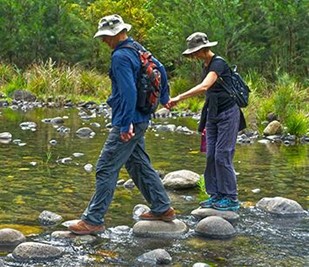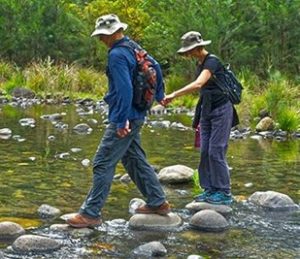
 Have you had that sinking feeling that you can’t do the things you used to do? Stand on one leg to pull your pants on or wash your feet? Climb that ladder to get to the gutters? Perhaps you have had a silly trip or fall. Do you ask yourself why?
Have you had that sinking feeling that you can’t do the things you used to do? Stand on one leg to pull your pants on or wash your feet? Climb that ladder to get to the gutters? Perhaps you have had a silly trip or fall. Do you ask yourself why?
The answer to this question is simple, “If you don’t use it you lose it.” This sounds like a flippant comment, but in reality it is a fundamental truth in the field of neuroscience.
The connections between our brain cells and neurons are really competitive and if there is no talk between certain nerve cells, they move on to make connections with those that will. There is evidence of this in people who undergo amputation surgery for a hand injury; within 24 hours the nerves responsible for the hand have moved on to now connect with skin on the face. The brain is highly changeable and needs ongoing input from our muscles and joints to maintain our movement.
Ageing and balance…
As we get older we may do less; less walking on the beach or uneven surfaces, less pretending to walk on a tightrope, less climbing on ladders etc. Then… the first dreaded fall, which may be a silly trip but it dents your confidence and the fear of falling means you do less to keep your balance. Most people then lose the body’s natural balance mechanisms, with hip and ankle movements or stepping to save yourself. Often people try to use their hands to grab things and save themselves, but if there is nothing to hang on to, there is a risk of falling over.
What can be done?
The first thing is to have a full and thorough assessment of your balance, compared to other people your age. There may be some reason for poor balance, such as pain or weakness in the legs. This will help your Physio to personalise an exercise program for you, with daily exercises.
Another principle of neuroscience is “use it to improve it.” A few minutes of specific exercises a day can make a huge improvement to your balance and reduce your risk of falls.
The good news is that balance exercises are extremely effective. There is a wealth of research to confirm that balance exercises, which progress your balance safely and appropriately, can help you maintain your balance as you get older.
Dr Michelle McDonnell – Neurological Physiotherapist























